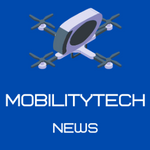Ford to offer its BlueCruise advanced driver assistance products on a subscription-only basis as per Counterpoint Research.
Ford Takes Leaf Out of Tesla Book, Moves Deeper into Services.
AUGUST 17, 2023 – Counterpoint Research reported Ford is continuing to demonstrate its understanding of the opportunity that it needs to address with the migration of its business model to subscription and the recruitment of Peter Stern from Apple to run its Integrated Services division.
The company is taking a leaf out of Tesla’s book and will offer its BlueCruise advanced driver assistance products on a subscription-only basis. This is not as counterintuitive as it sounds as new car buyers will be able to purchase the service for three years with an upfront payment of $2,100. Since it will be marketed as an option in the usual way, it is unlikely to change the purchase experience of new car buyers very much. Furthermore, as so many vehicles are purchased on leasing schemes, there is a good chance that the buyer of the new vehicle would have changed the vehicle before the three-year period has elapsed.
This is how Ford seeks to introduce users to the idea of BlueCruise subscription, but there remain some features that will never work on a subscription basis. Two of these are Mercedes’ idea of asking customers to pay $1,200 per year to improve the driving performance of their EVs and BMW’s idea of asking customers to pay $180 per year for heated seats. This is a very common strategy employed by consumer electronics companies and has also been used to good effect by Tesla.
However, the vehicle-buying public has been paying one-off fees for hardware options for decades and I suspect that there is going to be a lot of resistance to paying $15 a month to keep one’s bottom warm in winter. Hence, the right approach is to charge for the options exactly as they have been for years and to offer subscriptions for services rather than products.
Advanced driver assistance sits right in the middle as it requires extra hardware to be present but is almost entirely driven by software which will need constant updating. Furthermore, much like a chauffeur that needs to be paid on a monthly basis, it is not a very large conceptual jump to be seen as a service rather than a hardware option.
Tesla has already prepared the market for this and so Ford has a pretty good chance of winning adoption with this model. Ford has also recruited Peter Stern who spent six years at Apple (Time Warner before that) running its BlueCruise subscription services.
The idea here is obviously to ensure that when it comes to Digital Life in the vehicle, Ford is ready with an appealing option for each activity with which the user will engage. This will go from a media consumption offering to transport-related services such as smart parking, which saves the user from driving round and round looking for a parking spot.
The market for digital services in the vehicle could be very large indeed especially as consumer spending on vehicle transportation declines over the next 20 years. Ford is again doing the right thing in attempting to address this market, but it will need to ensure that its user experience remains relevant in the vehicle as Apple and Google will be only too happy to sell their services and those of third parties via their user experiences instead.
This is the key challenge that all OEMs face over the next 20 years and Ford remains one of the few automakers outside of Tesla that appear to understand what is happening to their industry and seem to be addressing it in the right way.
Source: Counterpoint Research

